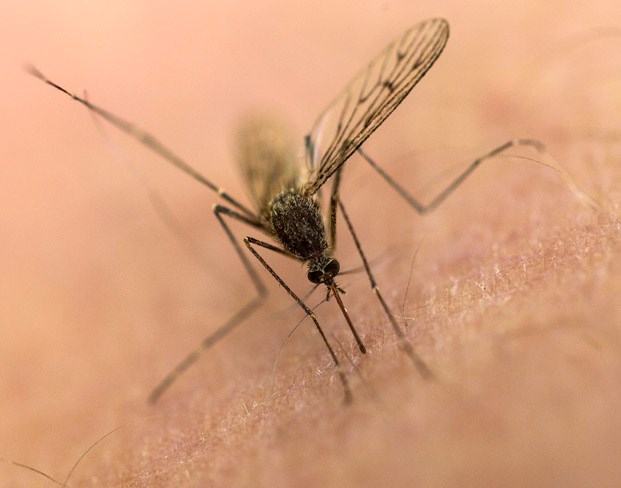Itchy season is upon us as June rains have brought the mosquito populations out of hiding, with one expert saying there are more mosquitoes than the region has seen in recent years.
Mosquito season started with a whisper in May with the hot and dry conditions, said the City of Edmonton's mosquito expert, Mike Jenkins, but high precipitation rates in June spurred the insects to spawn and spread in the region.
"In the spring we used to get a whole mix of different species that are triggered by snow melt and rain in April and in May. We just didn't get those at all," Jenkis said of the extremely dry conditions in much of the region.
But June rainfall, which was above average, Jenkins said, spurred significant hatching of the critters who are now flying around biting St. Albertans' ankles. The specific breed of mosquitoes that thrive in the summer are known for their activity at dawn and dusk for their "stealthy little ankle-biting," Jenkins said.
"They generally develop in temporary, open habitats, in open fields, things like that. Just small depressions that fill when the rain fills them up," Jenkins said.
The critters lay their eggs on the edge of ponds and when the water rises up, it activates their eggs and allows them to hatch.
In recent years a new type of mosquito has grown more dominant in Edmonton, the culex pipiens, known as the common house mosquito and it thrives in environments with less precipitation. The house mosquito only needs a little bit of water to get its eggs laid and hatching. Jenkins said typically other types of mosquitoes lay their eggs on the edge of ponds and need a decent amount of water to get the eggs hatching. But the house mosquito lays what Jenkins calls a 'raft layer' of eggs and they hatch almost immediately.
"They can take advantage of things like rain barrels, old tires and eaves troughs (or) potted plants that have a puddle of water sitting in there," Jenkins said.
Anything that holds water for three to four days and up to a week can potentially be a culex pipiens development site, Jenkins said.
Because these creatures only need a little bit of water to get their eggs hatching, they do much better in the dry summers brought on by climate change.
"They actually do better when it's mostly dry and very hot and they get just a little bit of rain and it's just enough rain to fill up all those little temporary habitats and they take advantage of that."
Climate change models predicted the culex pipiens would get to the Edmonton region by 2020 and Jenkins said the predictions were totally accurate and that is when they saw the bloodsuckers start to arrive and thrive in the region.
But while scientists can predict some changes to mosquitoes due to climate change, Jenkins said science hasn't quite figured out how wildfire smoke impacts their activity.
This summer was one of the smokiest the Edmonton region has had on record, but Jenkins said they aren't sure if that has impacted what the local mosquitoes are doing.
The bug expert suspects the smoke does impact their activity.
"Fires have been used for thousands of years as a way of reducing mosquito biting. They generally don't like the smoke," Jenkins said.
Mosquitoes find us through their sense of smell, Jenkins said. They either smell our carbon dioxide, sweat or lactic acid to know where to get a fresh meal.
"I could see the smoke definitely interfering with that. Most insects also don't like flying when it's smoky out just because it increases the danger of them getting caught in a fire. So many insects reduced their activity when it's said when there's smoke occurring," Jenkins said.
But scientists don't know for sure how much smoke impacts their flying.
"It appears to be something no one's really studied," Jenkins said.




